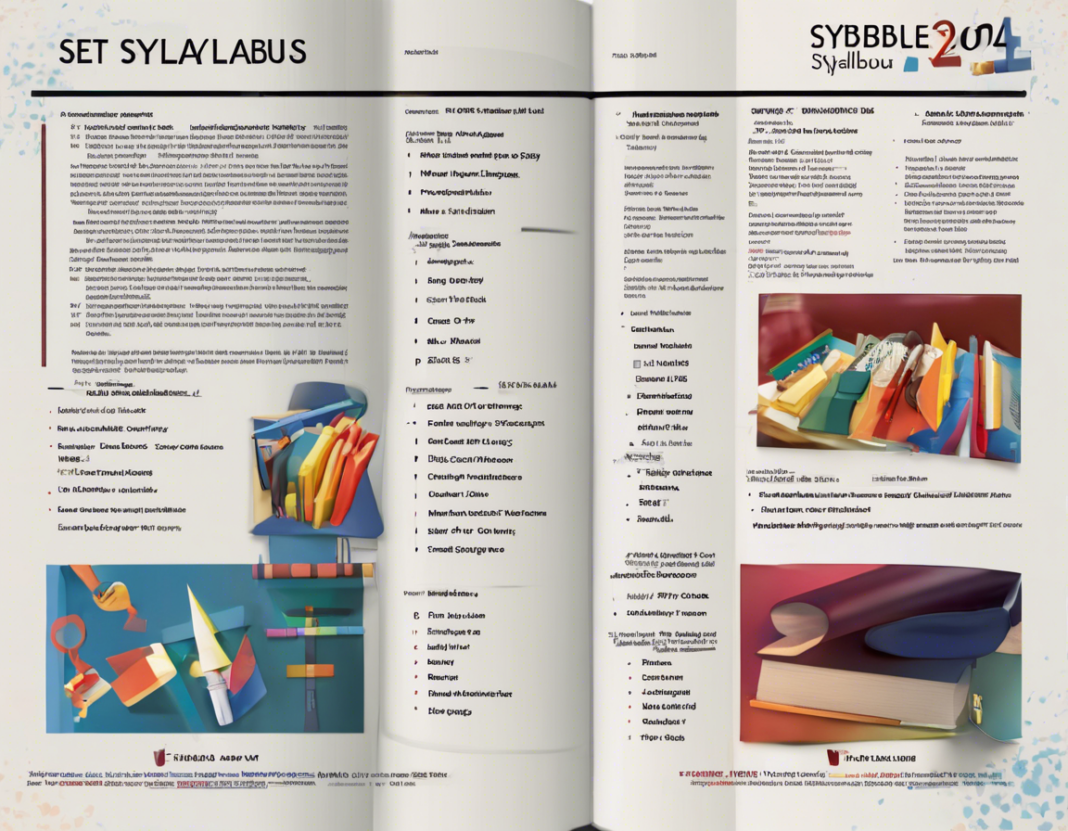In the ever-evolving landscape of education, it is crucial to constantly update and adapt curriculums to meet the needs of today’s students. With advancements in technology, changes in the job market, and a greater emphasis on critical thinking and 21st-century skills, it is time for a revamp in the education system. The year 2024 brings exciting new changes to the syllabus, aimed at preparing students for the challenges and opportunities of the future.
Importance of Updating the Syllabus
The traditional education system has often been critiqued for its rigidity and lack of real-world relevance. In today’s fast-paced world, students need to develop skills such as problem-solving, communication, collaboration, and digital literacy to succeed. The new syllabus for 2024 addresses these concerns by incorporating project-based learning, coding, financial literacy, emotional intelligence, and sustainability into the curriculum.
Key Changes in the New Syllabus
1. Project-Based Learning
Project-based learning is a pedagogical approach that encourages students to learn through hands-on projects and real-world challenges. By working on projects that require critical thinking, creativity, and collaboration, students develop a deeper understanding of the subject matter and acquire valuable skills that are applicable beyond the classroom.
2. Coding and Digital Literacy
In today’s digital age, coding and digital literacy are essential skills that students need to thrive in the workforce. The new syllabus introduces coding from an early age, teaching students how to write code, create websites, and develop apps. By understanding the fundamentals of programming, students can enhance their problem-solving abilities and prepare for technology-driven careers.
3. Financial Literacy
Financial literacy is a crucial skill that all individuals need to manage their finances effectively. The new syllabus includes financial literacy education to teach students about budgeting, saving, investing, and understanding financial markets. By imparting financial literacy skills, students are better equipped to make informed financial decisions and plan for their future.
4. Emotional Intelligence
Emotional intelligence is the ability to recognize, understand, and manage emotions effectively. In the new syllabus, emotional intelligence is integrated into the curriculum to help students develop self-awareness, social skills, empathy, and stress management. By cultivating emotional intelligence, students can improve their relationships, navigate social situations, and enhance their overall well-being.
5. Sustainability Education
As the world faces environmental challenges such as climate change and natural resource depletion, it is essential to educate students about sustainability. The new syllabus incorporates sustainability education to raise awareness about environmental issues, conservation, renewable energy, and sustainable practices. By promoting sustainability education, students can become environmentally conscious and responsible global citizens.
FAQs (Frequently Asked Questions)
1. Why is updating the syllabus important?
Updating the syllabus is important to ensure that students are equipped with the necessary skills and knowledge to succeed in a rapidly changing world. By incorporating new technologies, teaching methods, and subjects, the syllabus can remain relevant and meet the needs of students and the workforce.
2. What is project-based learning?
Project-based learning is an educational approach that focuses on student-centered learning through hands-on projects and real-world challenges. It allows students to apply their knowledge in practical situations, develop critical thinking skills, and collaborate with their peers.
3. Why is coding important in the new syllabus?
Coding is important in the new syllabus because it is a valuable skill that is in high demand in today’s technology-driven world. By learning to code, students can enhance their problem-solving abilities, logical thinking, and creativity, preparing them for careers in fields such as software development and engineering.
4. What is financial literacy?
Financial literacy refers to the knowledge and skills required to make informed and effective decisions about money management and financial planning. It includes understanding concepts such as budgeting, saving, investing, credit, and financial risk.
5. How does emotional intelligence benefit students?
Emotional intelligence benefits students by helping them develop self-awareness, empathy, social skills, and stress management abilities. It enables students to understand and manage their emotions effectively, build positive relationships, and navigate social situations with confidence.
In conclusion, the new syllabus for 2024 marks a significant shift towards innovative, student-centered, and future-focused education. By introducing project-based learning, coding, financial literacy, emotional intelligence, and sustainability education, students are better prepared to meet the challenges and opportunities of the 21st century. The revamped syllabus equips students with the skills, knowledge, and mindset needed to thrive in a rapidly changing world and make a positive impact on society.




